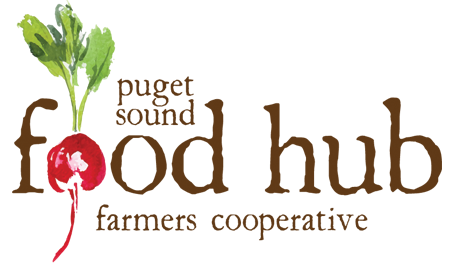Q&A With Lummi Island Wild
What inspired you to start Lummi Island Wild?
Lummi Island Wild was founded by a group of fishers who believed the premium salmon caught on the reefnets deserved the respect they commanded, not to be lumped in with commodity salmon. Salmon are central to the culture and ecosystems of the Pacific Northwest, and we set out to prove it’s possible to harvest them in a way that honors the fish, the waters, and the people who depend on them. Our mission has always been to connect people with truly wild, carefully harvested salmon — the way it should taste, and the way it should be fished.”
How did you learn about and get into reef netting?
Sierra - I was introduced to reefnetting through Ian, who by then had already recruited several of our friends and family into the crew. I grew up in the mountains of Colorado and didn’t feel very comfortable on the water at first, but Ian assured me I’d be just fine. On my very first day fishing, I was struck by how deeply connected the process was to nature — guided by the sun and tides, with each salmon handled with care and respect. I was hooked. Reefnetting has a way of getting into your blood. Knowing it’s a fishery with Indigenous roots, virtually zero bycatch, and now even powered by solar, there’s no other way I would ever want to fish.
Can you tell me about the reef netting process and what makes it more sustainable?
Reefnetting is unlike any other fishery, and we’re proud to operate the only solar-powered fishery on the planet. Artificial reefs guide salmon gently over a suspended net, where they’re carefully lifted from the water. Each fish is sorted live, with non-target species released unharmed within seconds, which makes bycatch virtually zero. Because the salmon are never chased or entangled, they remain in pristine condition. It’s an incredibly selective, low-impact fishery powered entirely by the tides and the sun.
What is something unique about the fishers you work with?
Every fisher we work with is deeply committed to doing things the right way; even if it takes more effort. Whether it’s reefnet crews, tribal partners, or small-boat fishers from Alaska and Washington, they share a respect for the resource and a desire to leave the ocean healthier than they found it. That mindset is rare, and it’s what binds us together.
Can you tell me about coho salmon and what makes it a great choice for cooking/eating?
Coho are sometimes called ‘the people’s salmon’ - versatile, abundant, and beautifully balanced in flavor. Our Fraser River reefnet-caught coho are especially rich in omega-3s, which gives them an extra depth of taste. Compared to sockeye, coho is milder and a bit more delicate, making it perfect for almost any preparation: grilling, baking, pan-searing, or even in chowders. It’s forgiving, approachable, and one of the best ways to introduce someone to the experience of truly wild salmon.
What is your favorite part about running Lummi Island Wild?
Hearing from people who taste wild salmon for the first time and say, “Wow, this is different.” That moment of connection - when someone understands the care that went into the fish on their plate - makes all the hard work worthwhile. We also love being able to support a network of fishers who share our values, while protecting a way of fishing that has such deep roots in this place.
What is your favorite or go-to meal with coho salmon?
Simple is best. Coho shines without much fuss. We love it pan-seared with just a little sea salt and lemon. Served with seasonal vegetables or over a salad, it’s an easy weeknight meal that still feels special.





